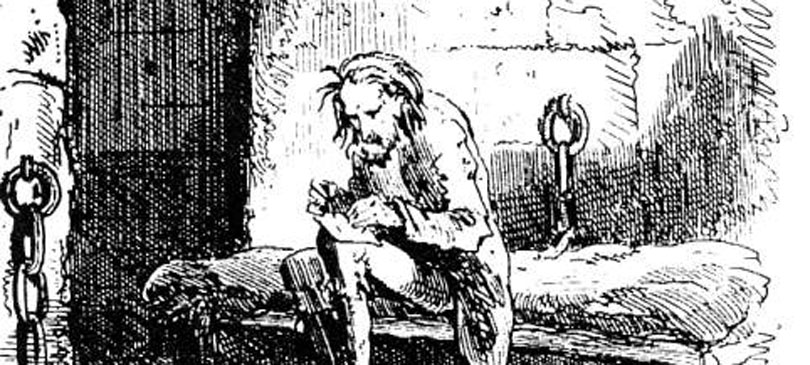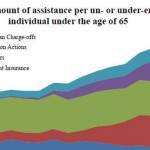A Tale of Two Classes: Wealth Isn’t Irrevocable
With all the talk of inequality lately, Charles Dickens’s A Tale of Two Cities comes frequently to mind. A recent column by Al Lewis might lead some readers to recall these Dickensian paragraphs in particular:
In the instinctive association of prisoners with shameful crime and disgrace, the new-comer recoiled from this company. But the crowning unreality of his long unreal ride, was, their all at once rising to receive him, with every refinement of manner known to the time, and with all the engaging graces and courtesies of life.
So strangely clouded were these refinements by the prison manners and gloom, so spectral did they become in the inappropriate squalor and misery through which they were seen, that Charles Darnay seemed to stand in a company of the dead. Ghosts all! The ghost of beauty, the ghost of stateliness, the ghost of elegance, the ghost of pride, the ghost of frivolity, the ghost of wit, the ghost of youth, the ghost of age, all waiting their dismissal from the desolate shore, all turning on him eyes that were changed by the death they had died in coming there.
The scene is set in a French prison during the revolutionary era in which are gathered the loathed and fallen aristocrats, and it stands as a reminder that wealth and civic influence can lose their power to protect if the tumult of the times becomes loud enough. This relates to Lewis’s column, titled “Hooray for Socialism!,” via his observation that the Federal Reserve “committed $7.7 trillion to rescuing the U.S. financial system,” and that the game has moved toward propping up Europe so as to protect the investments of putative capitalists:
The only question now is whether the Fed can keep this global Ponzi scheme going throughout our lifetimes, and leave it to our children to suffer, or whether the whole thing will blow any day.
The cruel irony is that if it blows, we’ll get another Great Depression, anyway, with several times more debt than the one we were due in 2008.
With the evidence of Central Falls’ slashing its pension debt as a backdrop, investors and policy makers alike should question whether it’s worth chasing debt security into the unpredictable swirl of a Great Depression (if that is, indeed, the likely outcome). When the public decides that it simply cannot pay a debt, it won’t, and as the imperial ambitions of Napoleon Bonaparte and the totalitarian authority Central Falls’ Receiver Robert Flanders both indicate, the mechanisms by which the public adjusts for economic disparity have much broader consequences than on high finance alone.
Artwork titled “In the Bastille” from the original illustrations of A Tale of Two Cities, written by Charles Dickens and illustrated by Hablot Knight Browne.



